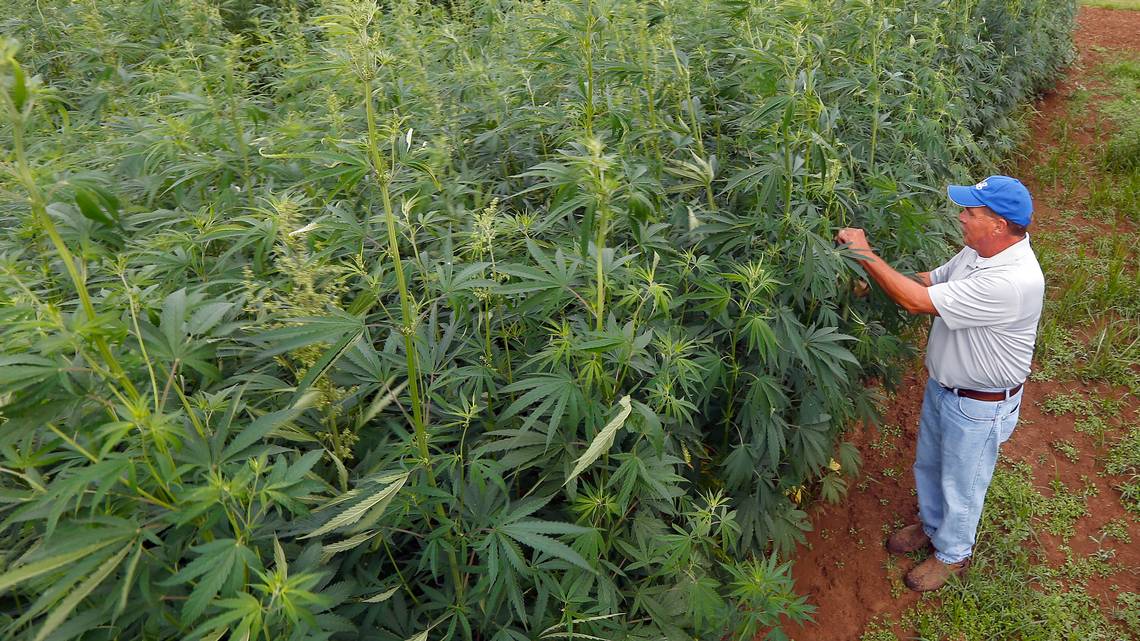Delta-8 THC, a compound derived from hemp, has gained significant attention in recent years for its potential therapeutic benefits and milder psychoactive effects. However, the legal status of Delta-8 THC has been subject to interpretation and uncertainty. In this comprehensive guide, we will explore the recent clarification from the US Department of Justice (DOJ) and Drug Enforcement Administration (DEA) regarding the legality of hemp-derived Delta-8 THC.
Understanding Delta-8 THC
Before delving into the legal position, it is important to understand what Delta-8 THC is. Delta-8 THC is a naturally occurring cannabinoid found in small amounts in cannabis plants, including hemp. It shares similarities with Delta-9 THC, the primary psychoactive compound in cannabis, but has a slightly different molecular structure. Delta-8 THC offers milder psychoactive effects and has gained popularity as a potential alternative to traditional cannabis products.
Legal Status of Delta-8 THC
Federal Hemp Laws
The legal landscape surrounding Delta-8 THC is shaped by federal hemp laws, specifically the 2018 Farm Bill. This legislation legalized hemp and its derivatives, including Delta-8 THC, as long as the products contain less than 0.3% Delta-9 THC. This classification allowed for the production, sale, and use of hemp-derived Delta-8 THC at the federal level.
State Variations
While Delta-8 THC is federally legal, its status can vary at the state level. Some states have explicitly addressed the legality of Delta-8 THC, while others have not yet established specific regulations. It is crucial to research and understand the laws and regulations in your specific state to ensure compliance.
US DOJ-DEA Clarification on Delta-8 THC
In May 2021, the US Department of Justice (DOJ) and Drug Enforcement Administration (DEA) provided a clarification regarding the legal status of Delta-8 THC derived from hemp. The clarification stated that synthetically derived cannabinoids, including Delta-8 THC, fall under the Controlled Substances Act (CSA) definition of “tetrahydrocannabinols” (THCs), making them illegal if produced synthetically. However, the DOJ-DEA clarified that if Delta-8 THC is derived from hemp, it is not considered synthetic and falls within the scope of the legal definition of hemp and its derivatives.
Implications of the DOJ-DEA Clarification
Hemp-Derived Delta-8 THC
The DOJ-DEA clarification confirmed that Delta-8 THC derived from hemp is legal, provided it complies with the requirements outlined in the 2018 Farm Bill. This clarification provides clarity and reassurance for producers and consumers in the hemp industry, allowing for the continued production and sale of hemp-derived Delta-8 THC products.
Synthetic Delta-8 THC
The clarification also highlighted the distinction between naturally derived Delta-8 THC from hemp and synthetically derived Delta-8 THC. Synthetic Delta-8 THC, produced through chemical processes, falls under the definition of illegal synthetic cannabinoids and remains subject to enforcement action by the DEA.
Compliance and Quality Control
While hemp-derived Delta-8 THC is legal, it is crucial for producers to ensure compliance with federal and state regulations. This includes sourcing hemp from licensed cultivators, testing products to confirm Delta-9 THC levels below 0.3%, and following good manufacturing practices. Compliance and quality control measures are essential to provide safe and reliable Delta-8 THC products to consumers.
State-Specific Considerations
Although the DOJ-DEA clarification provides a federal perspective, it is important to note that individual states have the authority to enact their own regulations regarding Delta-8 THC. Some states have explicitly addressed Delta-8 THC in their legislation, while others may have yet to establish specific regulations. Understanding the laws and regulations in your state is vital to ensure compliance with local requirements.
Future Regulatory Developments
The legal status of Delta-8 THC continues to evolve as regulators and lawmakers grapple with the complexities of cannabis and hemp regulation. Future regulatory developments may include more specific guidelines and requirements for the production, sale, and use of Delta-8 THC. Staying informed and engaged with industry updates and potential legislative changes is essential for businesses and consumers in the Delta-8 THC market.
The Rise of Delta-8 THC
In recent years, Delta-8 THC has gained popularity as a legal alternative to traditional cannabis products. Consumers have been drawn to its potential therapeutic benefits and milder psychoactive effects compared to Delta-9 THC. The accessibility of Delta-8 THC, which is derived from hemp and falls within the legal limits set by federal and state hemp laws, has contributed to its rising popularity among both medical and recreational users.
Legal Ambiguity Surrounding Delta-8 THC
The legal status of Delta-8 THC has been subject to interpretation and ambiguity, primarily due to variations in how federal and state laws are applied and enforced. While the 2018 Farm Bill legalized hemp and its derivatives, including Delta-8 THC derived from hemp, it did not explicitly address the production, sale, and use of Delta-8 THC products. This lack of specific guidelines has led to confusion and differing interpretations among regulators, producers, and consumers.
DEA’s Role in Drug Enforcement
The Drug Enforcement Administration (DEA) is responsible for enforcing federal drug laws in the United States. The DEA plays a crucial role in classifying and regulating controlled substances, including various cannabinoids. Their classifications and interpretations can significantly impact the legal status and regulatory environment surrounding Delta-8 THC and other cannabis-related compounds.
US DOJ-DEA Clarification
The recent clarification from the US Department of Justice (DOJ) and DEA regarding Delta-8 THC derived from hemp sought to provide clarity on its legal status. The clarification affirmed that Delta-8 THC derived from hemp is not considered a synthetic cannabinoid and is legal under the federal definition of hemp and its derivatives. This clarification aimed to address the confusion and provide guidance to producers and consumers in the hemp industry.
Conclusion
The recent clarification from the US DOJ-DEA regarding hemp-derived Delta-8 THC confirms its legal status under the federal definition of hemp and its derivatives. This clarification provides clarity for the hemp industry, ensuring continued production and sale of Delta-8 THC products. Compliance with federal and state regulations, along with ongoing engagement with legislative developments, will be key in navigating the evolving legal landscape surrounding Delta-8 THC.
Moreover, in his capacity as a Business Strategy Adviser, he brings a strategic mindset to organizations, assisting them in navigating complex market dynamics and devising effective plans for success. Oswaldo Porter's diverse skill set spans the realms of personal development, therapy, and business strategy, making him a valuable asset for those seeking growth and transformation, both personally and professionally.
- Us Doj-Dea Clarifies Position That Hemp-Derived Delta 8 Thc Is Legal - October 20, 2023
- Top Delta 8 Disposable Vape Pen Strains For Anxiety - October 20, 2023
- Can CBD Oil Help Stroke Patients - October 20, 2023







